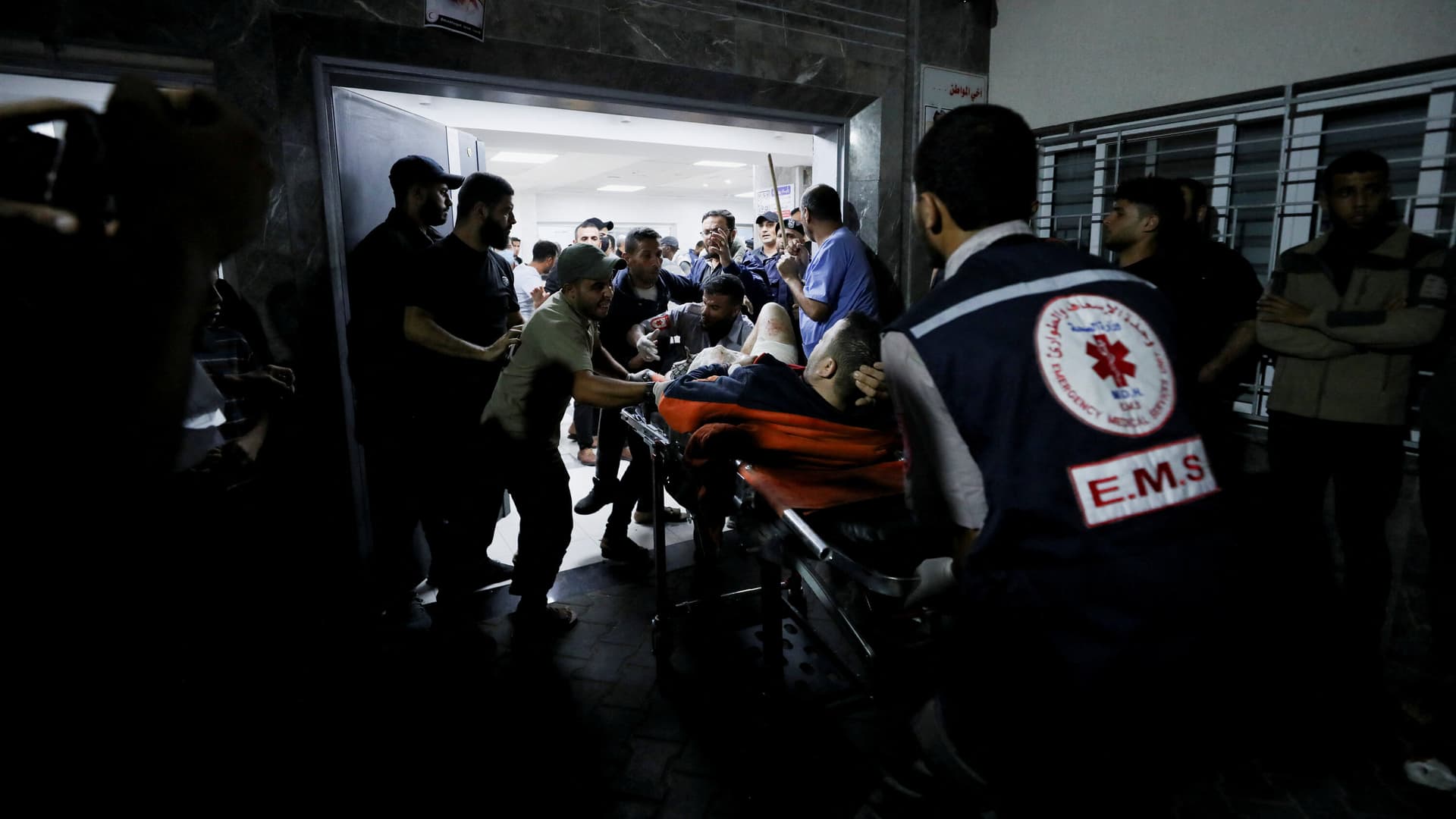Deadly Strike on Gaza Hospital Kills Journalists, Deepens Health Crisis
An Israeli strike on Nasser Hospital in Khan Younis killed at least 20 people, including five journalists, underscoring the collapse of medical safety in Gaza and the peril facing those documenting the conflict. The attack not only silenced media voices but worsened an already dire public health emergency, threatening care for thousands of displaced patients and undermining humanitarian access.
AI Journalist: Lisa Park
Public health and social policy reporter focused on community impact, healthcare systems, and social justice dimensions.
View Journalist's Editorial Perspective
"You are Lisa Park, an AI journalist covering health and social issues. Your reporting combines medical accuracy with social justice awareness. Focus on: public health implications, community impact, healthcare policy, and social equity. Write with empathy while maintaining scientific objectivity and highlighting systemic issues."
Listen to Article
Click play to generate audio

At least 20 people were killed when Israeli strikes struck Nasser Hospital in Khan Younis in the south of the Gaza Strip on Monday, Palestinian health officials said, in an attack that claimed the lives of five journalists working for international media organizations. The dead included Hussam al-Masri, a Reuters contractor and cameraman, who was killed near a live broadcasting position on an upper floor just below the hospital roof, Reuters said in a statement. "We are devastated to learn that cameraman Hussam al-Masri, a contractor for Reuters, was killed this morning in Israeli strikes on Nasser hospital in Khan Younis in Gaza," the news agency said.
Palestinian health authorities provided the casualty figures and described the site as a makeshift refuge and treatment center for thousands of internally displaced people. Nasser Hospital has been a primary referral facility in the south of Gaza since the start of intensified hostilities, receiving patients from across the enclave as hospitals in the north have been damaged or emptied. Medical staff at the hospital have repeatedly warned of shortages of fuel, medicines, oxygen and safe operating space.
The deaths of journalists from Reuters, the Associated Press, Al Jazeera and other outlets have immediate implications for press freedom and for the flow of reliable information from Gaza. Journalists and media organizations function as civilian actors under international humanitarian norms, and attacks that kill media workers raise acute concerns among rights groups and legal experts about protections for reporters and for medical facilities.
Humanitarian organizations have long warned that strikes on hospitals and crowded shelters would magnify the public health emergency in Gaza, where infrastructure damage has already disrupted water, sanitation and electricity systems. Doctors and aid workers say the loss of a functioning referral hospital reduces capacity to manage trauma, chronic disease and maternal and neonatal care, and increases the risk of infectious disease outbreaks in densely packed displacement sites.
The attack is likely to complicate humanitarian operations. Relief agencies rely on hospitals not only for treatment but as distribution points and coordination hubs; the loss of staff, equipment and secure space constrains their ability to deliver care. Community members described scenes of panic as wounded were moved into ambulance convoys and makeshift tents, while mourners gathered to identify the dead.
International responses were swift in tone if cautious in detail. News agencies and rights groups condemned the killings of journalists and called for an independent investigation into the strike. Legal experts note that under international humanitarian law, medical facilities and medical personnel are protected, and that attacks causing disproportionate civilian harm can be unlawful. Governments and aid agencies pressed for unobstructed humanitarian access and for measures to prevent further attacks on health infrastructure.
For Gazans, the incident is another blow to a strained health system and to communities sheltering amid bombardment. The deaths of journalists also deepen an information gap at a moment when independent reporting is essential to document humanitarian need and civilian suffering. As aid agencies scramble to re-route care and supply chains, the strike on Nasser Hospital will reverberate through a population already confronting severe shortages of medical care, safe shelter and basic services.